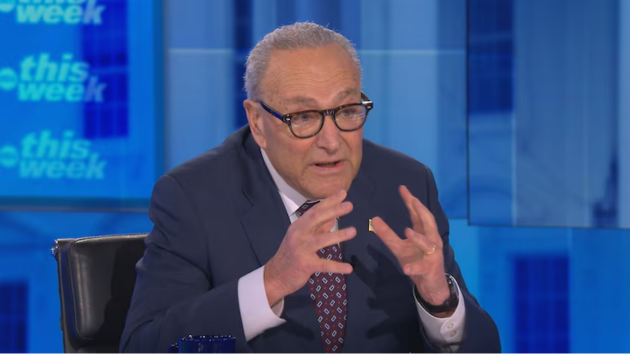Now that Donald Trump has been convicted, what happens next?
Written by ABC Audio ALL RIGHTS RESERVED on June 1, 2024
(WASHINGTON) — Former President Donald Trump was found guilty of 34 counts of falsifying business records on Thursday, but that will not stop him from being able to run for election in November — and the case is not over yet.
He is scheduled to be sentenced on July 11, just days before the Republican National Convention, where he is expected to become the official Republican Party nominee for president.
Before he can file an appeal of the conviction, he needs to be sentenced by Judge Juan Merchan, according to Fordham University Law Professor Cheryl Bader.
“The case is not considered complete until after sentencing. After sentencing, I’m sure his team will file a notice of appeal and then a briefing schedule will be set,” Bader told ABC News.
“I’m sure he’ll be looking to appeal on a whole host of different issues that came up during trial from the jury selection to various evidentiary rulings,” Bader said.
Sentencing
Before sentencing, the Probation Department will be charged with preparing a pre-sentence investigation, or a probation report, for Merchan, which will include interviewing Trump. The report will provide Merchan with a sentencing recommendation, experts said.
Both the defense and prosecution will also submit their recommendations for sentencing to the judge for consideration.
Some experts told ABC News it is highly unlikely Trump will be sentenced to prison time.
“I would be surprised if we see a sentence of incarceration,” Bader said. “He has no criminal record, it’s a nonviolent crime. He’s of a significant age where people tend to age out of criminal conduct, and the logistical issues are large here.”
“If he were sentenced to a term under a year, normally, he would be sent to Rikers Island, but that’s not going to work in this case — and so there are logistical issues of where to house him — and a lot of political implications of incarcerating the Republican nominee, just prior to the election,” Bader said.
Bader also pointed to Merchan not sending Trump to jail over his violations of the gag order issued against him in the case.
“I’d be very surprised if we see a sentence of incarceration, and I think Judge Merchan has tipped his hand a little bit in telling former President Trump that he doesn’t want to send him to jail,” Bader said.
Bader said other sentencing options include community service or fines, but those could be logistically difficult or fail to serve the goal of punishment in this case.
“If we weren’t living in Trump world, the punishment would be the conviction itself. Most people that have run for president in the past would consider 34 felony convictions to be a death knell for their prospects,” Bader said.
Another expert said it is likely Trump could be sentenced to probation or a conditional discharge, but concurred that it is very unlikely he will get any prison time.
“He doesn’t need to be supervised by the probation department. He should be given what’s called the conditional discharge, which is an unsupervised period of probation where you don’t report to anyone just stay out of trouble,” Cornell University Law Professor Randy Zelin said.
His sentencing could have an impact on legal procedures in the unlikely event he is sentenced to incarceration.
Any sentence that deviates from what legal experts expect could be because Trump has put the court in an “awkward position, because he is daily thumbing his nose at the justice system and showing absolutely no respect for the law,” Zelin said.
“Had the former president not being outside every day calling Justice Merchan corrupt and conflicted and terrible and bad-mouthing his daughter and bad-mouthing him, I would say it would be a no brainer, he’s not going to jail,” Zelin said.
How does an appeal work?
Once he is sentenced, the appeals process can begin.
“Once he is sentenced, then his time to appeal — that clock begins to tick — and he will have 30 days to file his notice of appeal and then there will be a schedule sent down for him to what’s called ‘perfect’ his appeal — and that’s when you actually file your appellate briefs,” Zelin said.
A Notice of Appeal — a court filing indicating a person’s intent to proceed with an appeal — must also be mailed or delivered to the prosecuting attorney.
“The case will then be sent down for oral argument in the appellate division,” Zelin said.
From there, it could take months before his case goes before the appellate division, unless his attorneys submit emergency applications, hoping to get an appeal heard before the election in November, Zelin said.
The defense would first appeal to the Appellate Division, First Department in Manhattan. If they lose that appeal, they could try to appeal further to the Court of Appeals — New York’s highest court — but that court only hears a small percentage of the criminal appeals that are requested.
“I’m sure the former president will argue that ‘the appeal means nothing to me if it comes after the election, because if you end up throwing out these convictions, what good does it do me if I’ve already lost the election?'” Zelin said.
Copyright © 2024, ABC Audio. All rights reserved.







